
Jesse Winchester dropped onto the music scene with considerable buzz. Was this Bob Dylan recording under an assumed name? He's a friend of the Band! Who is this guy?

When his first, eponymous album appeared with a green-grey photo of his unsmiling, bearded face, Jesse Winchester in plain black lettering across the top, and the same photo on the back, AND repeated twice on the inside of the gatefold...there wasn't much to go on. No lyric sheets. No posters. No extensive liner notes by Ralph Gleason. Just a list of the musicians involved; David Rea on guitar, a rhythm section featuring Levon Helm and production by Robbie Roberston. But to listen to this album was to be transformed. This was some serious stuff. A potent riff, a rocking beat, and:
"Let's go out on the town tonight,
my pockets are heavy with loot.
We'll get drunk and nasty,
and loud and agressive to boot!"
The album was filled with simple tunes, evoking the songwriter's home in Tennessee, and his longing for his home in the South. He was, after all, a draft evader...in exile in Montreal, the most European of Canadian cities. A stranger in a strange land.
This was over thirty years ago, and Jesse Winchester has continued to write from his home in Quebec. He took himself a Canadian wife, and lived the good life north of the border; becoming a Canadian citizen, and after the Jimmy Carter amnesty, finally returning to tour the US in 1977.

Todd Rundgren produced part of his second album, 1972's Third Down and 110 To Go. The title alludes to Canadian football, which has one fewer downs, and a longer field than its American counterpart. If it's "3rd & 110 to go"...you're in trouble babe! Rundgren's production set a standard for the next few albums. Where Robbie Robertson had provided a garage band sound, Rundgren went for an even further stripped-down approach. Winchester's three-chord tunes were presented almost in demo form. The simple melodies and homey lyrics take the forefront and the quality picking by local musicians, and the odd guest star just provide a foundation for Winchester's warm vocals. The album cover art tells a tale too. Far from the stern, almost scarey visage on the first album, Jesse looks happy on the cover of this one, life is settling down.

The next two albums continued this approach. Band members included the gifted Amos Garrett whose superlative melodic guitar stylings provide some memorable moments, and Russell Smith whose song "Third Rate Romance" (later a hit for his own band the Amazing Rhythm Aces) made its first appearance on Learn To Love It (1974). The cover art for this one shows an ecstatic dad holding up his first born!

In 1976 Let The Rough Side Drag was virtually a sequel to Learn to Love It. Winchester was writing minimalistic songs, little snapshots of life. He was enjoying his life and making quick to the point comments. It's a songwriting style that suits him, and his melodic gift is such that the tunes are memorable 25 years later.

With 1977's Nothing But A Breeze he upped the ante. Maybe after the amnesty the record company decided to spend a bit more money, but on this album the home-made quality started to slip away, and producers were brought in to give Jesse a commercial "sound". Brian Ahern, who gave a glossy sheen to the early albums of Ann Murray and Emmylou Harris, tried his magic here. In fact both of those singers appear in backing roles. But apart from a pleasant but slow turn on "Bowling Green", and "Rhumba Man" -- soon to be a hit for Nicolette Larsen -- there's not much to recommend this album.

1978 saw another attempt to mainstream Mr. Winchester, this time by taking him to Nashville. Norbert Putnam led a galaxy of Nashville session men to produce A Touch on the Rainy Side. David Briggs and Kenny Buttrey were among the musicians hired to polish a rather forgettable batch of tunes. The most memorable song on the album is Tony Orlando's hit "Candida", a scary thought indeed!

Winchester returned south of the border for 1981's Talk Memphis, a slice of funky, Tennessee R & B produced by Willie Mitchell. While not completely successful, the grooves are appealing and Winchester relaxed vocals are well presented. "Say What" was a minor hit, and is representative of the album as a whole. Winchester took a break at this point. He wrote songs tunes that were recorded by other artists and gained a reputation for doing so. In 1988 WEA released a collection of his best songs from the Bearsville albums and came up with a good cross section that highlights his strengths. Warm, mellifluous vocals, and quirky little songs surrounded by nice picking and a decent groove. What more could you ask?

Winchester was picked up by Sugar Hill Records, and 1989 saw the release of Humour Me. He shows his Northern allegiance by choosing the Canadian spelling of the title. This is a listenable but not particularly ground-breaking album. There's no questioning the musicianship though. Winchester is surrounded by Sugar Hill staples Jerry Douglas, Bela Fleck, Sam Bush and Edgar Meyer.

It would be ten years before Jesse Winchester released another album. 1999 saw the release (again on Sugar Hill) of Gentleman of Leisure. This was a return to form, and a quite enjoyable record. I especially liked the sly reference to Steve Cropper, who then takes a rather nifty guitar solo! The title track is one of Jesse's novelty tunes, which he writes to break up the seriousness of his songs of life and love that populate his writing.

Winchester demos all his songs solo, playing all the instruments, and in 2001 he released Rough Ideas, the demos for Gentleman of Leisure. It is a novel idea, and worth a listen if you're interested in the creative process of songwriting and recording.

Over the years Winchester has released a succession of live albums which present him fronting his hot band of Montreal musos, playing his greatest songs. Live at the Bijou Cafe was a 1977 promo album later issued in Japan (and bootlegged in North america), and is a rocking little number, intimate and fun. 2001 saw the release of Live at the Trojan Horse, 1976 which is similar in feel and material, but available in North America. Live From Mountain Stage is a solo performance on Blue Plate Records close to what a perfomance from Jesse is like today. As a songwriter he is probably best represented in a marvelous double CD, Anthology on a British label called Castle. The 23 best songs from his whole ouevre are presented in chronological order on the first CD; and whoever chose the songs obviously feels as strongly about Winchester as I do. The second CD is the incredible first album in it entirety. It's as good today as it was when I firsty heard it! With liner notes by Colin Escott it's the perfect collection, if you can find it.
I have admired and listened to Jesse Winchester for 30 years. His songs of distance, and longing for his homeland moved me to tears; his songs of home and hearth warmed my soul. In looking at this collection of material I realize that he has been a spottier performer than I thought. The first album was a powerful introduction to a new songwriter, and the next three albums saw him develop a unique and cozy style. While the record labels' experiments with commercialization seem dated today, there are still a few gems from this era. And Winchester remains a powerful voice and a magnetic performer, perhaps best enjoyed in compilations.

On Saturday night Jesse Winchester played in concert at the Spectator Auditorium in Hamilton. The show was sold out, and a week ago the organizers added 20 seats which disappeared quickly. We arrived 35 minutes early and had to sit close to the back of the room. Winchester ambled out carrying his gut-string guitar, at exactly 8:00. He sat on a stool and launched into a gentle version of "Brand New Tennessee Waltz" which set the tone for the whole night. He sang songs from his whole career, including a selection or two from last year's Love Filling Station, in a light tenor, fingering funky chords on the guitar, and showing a flair for drama with his expressive hands. His stories of the South, of life in Montreal, of approaching 'geezerness' and a newfound appreciation for the Mercury Grand Marquis set the songs in context. The crowd in that hot auditorium, loved him. And a great time was had by all.


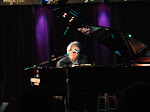













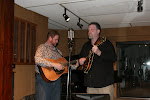.jpg)

.jpg)









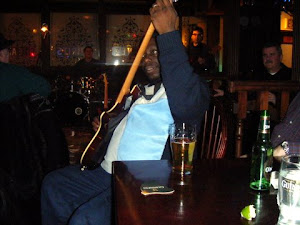



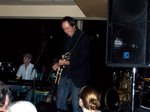
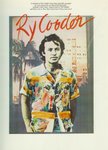
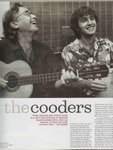
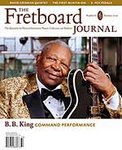
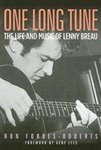


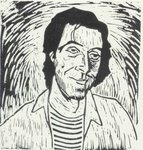


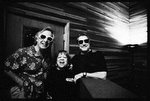



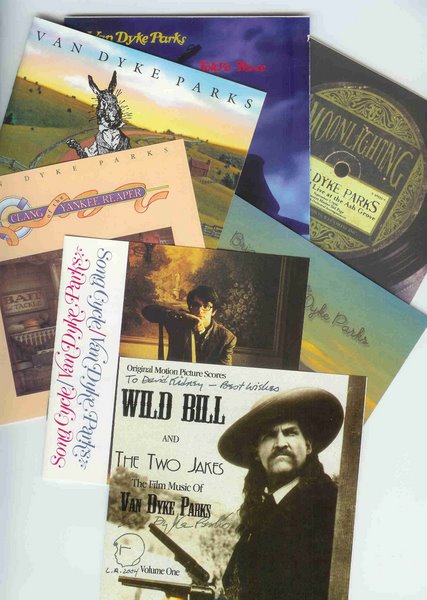



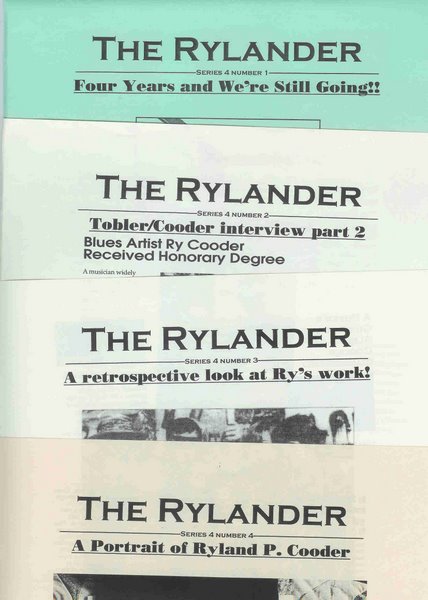



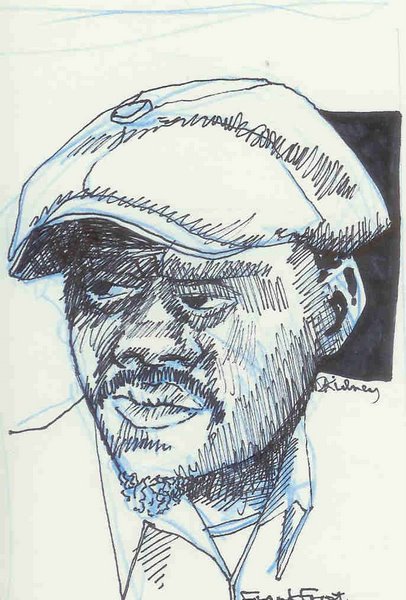
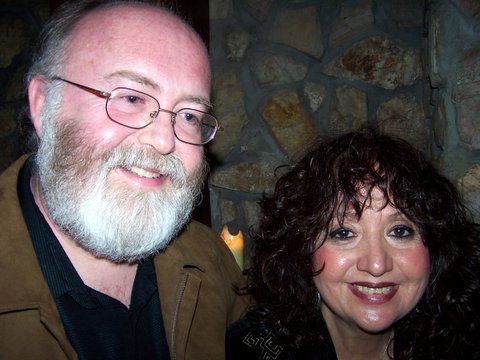
No comments:
Post a Comment